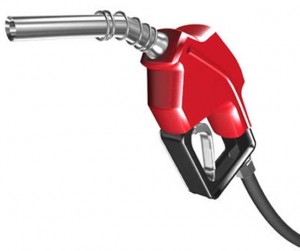
Driven by rising fuel prices and a weak economy, the average new American vehicle's fuel economy has risen 5% since 2007, according to a new study.
A new University of Michigan study from its Transportation Research Institute says that since 2007 the average fuel economy of new vehicles purchased in the U.S. has increased by more than 5%. The combination of rising unemployment and rising fuel prices have contributed to the shift.
The average fuel economy of purchased new light-duty vehicles — cars, pickup trucks, minivans and SUVs — improved from 20.2 miles per gallon in October 2007 to 21.3 mpg in April 2008. Fuel economy peaked in May 2008 at 21.7 mpg, amid a surge in the sales of small cars. Since then the improvement has fallen back as gasoline prices have dropped.
The report by UMTRI’s Michael Sivak and Brandon Schoettle of the Transportation Research Institute found that unemployment and the price of gasoline together account for 53% of the variance in the average fuel economy of new cars purchased.
“In early 2008, when the unemployment rate was relatively low, the increased price of gasoline led to an increase in the purchases of relatively expensive vehicles that were fuel efficient,” said Sivak, research professor and head of UMTRI’s Human Factors Division. “This ended when gasoline prices declined in late 2008.”
“However, as unemployment continued to rise into early 2009, purchases of large and expensive vehicles — which, in general, are relatively fuel inefficient — declined more than purchases of small and inexpensive vehicles, which, in general, are relatively fuel efficient. Thus, with relatively low gasoline prices and high unemployment, the fuel economy of the new-vehicle fleet improved by an increase in the proportion of purchases of inexpensive vehicles,” the study said.
Overall, seasonally adjusted sales of new light vehicles fell by about 40% from October 2007 to April 2009. Sivak and Schoettle found that the unemployment rate accounted for 89% of the variance in monthly vehicle sales.
“Our findings suggest that during the period examined both the unemployment rate and the cost of gasoline influenced buyers’ decisions concerning the fuel economy of vehicles purchased,” Sivak said.
“On the other hand, the number of vehicles purchased, while strongly influenced by the unemployment rate, did not appear to be affected by the price of gasoline,” the study found.
The study could be used to bolster the case that higher gasoline taxes rather regulation could be used to change American driving habits.
Another possible conclusion is that rising unemployment hurts vehicle sales, which in turn hurts the economy.
Seems obvious doesn’t it?

